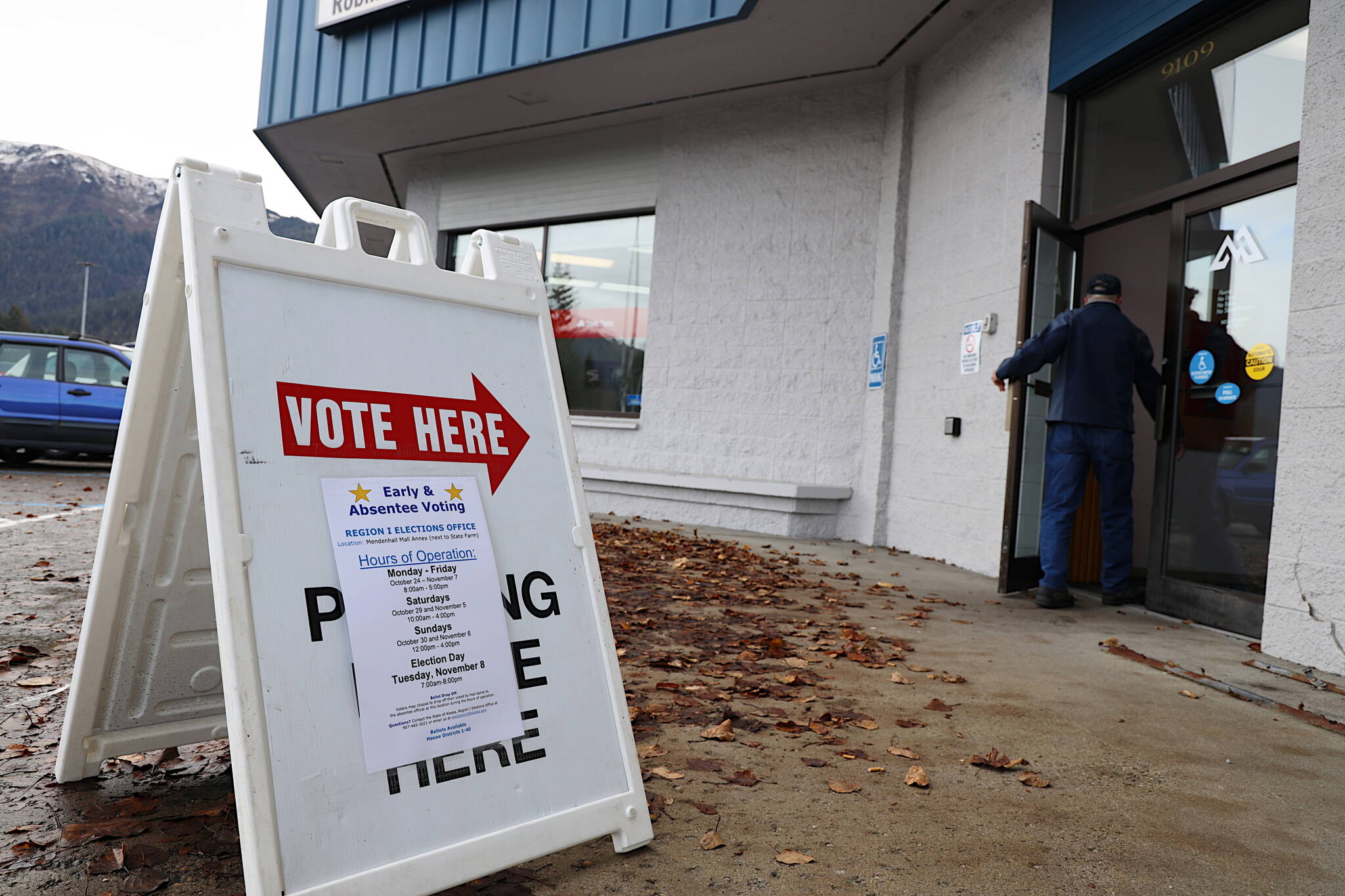Roughly halfway through Alaska’s early voting period about half as many ballots have been cast compared to 2018’s midterm, according to the state Division of Elections’ data. But that’s not an indication that roughly the same numbers and trends are occurring.
There are far more requests for mail-in ballots than four years ago, for instance, while in at least some areas of the state in-person early voting totals are down significantly, according to state figures. Also, since mail-in ballots can be sent through Election Day on Nov. 8 many will be tallied during the 10 days allowed afterward for domestic mail and 15 days for international mail.
A total of 30,357 ballots were cast as of late Friday — with updated totals expected after press time Monday evening — compared to the 63,228 Alaskans voting before election day in 2018. This year’s totals include 13,764 in-person early votes and 16,593 absentee ballots (with 15,206 submitted by mail, 780 in person, 572 online, 33 by special needs voters and two by fax).
Among the notable numbers are mail-in ballots, which appear to be retaining some of their popularity after being cast in historic numbers in 2020 due to the COVID-19 pandemic, said Tiffany Montemayor, an election division spokesperson.
“In 2020 we got way more. This year there’a quite a bit, but not as much,” she said.
This year there were 48,918 requests for mail-in ballots by Saturday’s deadline, compared to 25,807 in 2018, Montemayor said. In 2020 the state received nearly 100,000 by-mail ballots, compared to about 22,000 in 2018.
On the other hand, The Fairbanks Daily News-Miner reported there were 1,100 fewer in-person early votes as of Friday in that city compared to 2018.
In Juneau as of Friday there were 684 early votes and 606 absentee (491 by mail, 99 in-person, 15 online, 1 special needs) in District 3 representing part of the Mendenhall Valley and communities in the northern panhandle. There were 748 early votes and 363 absentee (341 by mail, 15 in person, six online, one special needs) for District 4 representing downtown, Douglas, Lemon Creek and a portion of the Mendenhall Valley.
Early voting in Juneau will continue from 8 a.m. to 5 p.m. weekdays through Nov. 7 at the State Office Building and the election division’s office at the Mendenhall Mall.
One aspect of early voting that has apparently remained normal in Alaska — despite being abnormal in some other states — is there have been no reports of encounters involving official or unofficial poll watchers. However, several people claiming they are Alaska residents have registered to be activists for the group Clean Elections USA, whose members are allegedly behind incidents such as masked and armed people keeping a 24-hour-a-day watch on ballot boxes in Arizona.
“There have been no reports of any suspicious behavior,” Montemayor stated.
The official guide for poll watchers in Alaska states one person at a time representing a political party, organized group, or candidate can be at a polling place. They are required to wear an official identification badge, and “may not campaign or try to persuade voters to vote a certain way inside the polling place or within 200 feet of any entrance.”
Outside of 200 feet, of course, such activity is permissible. Also, Alaska’s gun laws are among the most permissible in the U.S., with no license is required for an openly carried or concealed firearm.
• Contact Mark Sabbatini at mark.sabbatini@juneauempire.com

